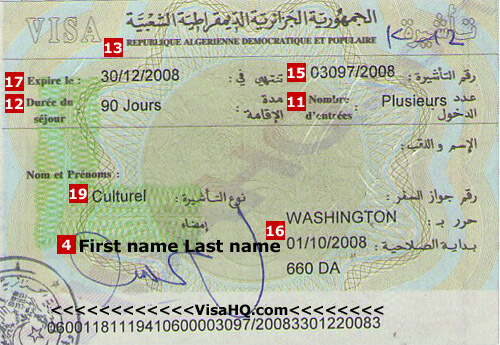Algeria Embassy list in Suriname
Need help?Chat with us
Why Trip Registration at the Algeria Embassy is Important
Registering your trip with the Algeria embassy is crucial for ensuring your safety and maintaining effective communication during your stay abroad. In the event of natural disasters, like earthquakes or floods, having your details on file can facilitate quick assistance and rescue efforts. Similarly, during instances of political unrest, the embassy can provide timely updates and guidance to help you navigate rapidly changing circumstances. Furthermore, if you face a medical emergency, being registered allows embassy officials to coordinate with local healthcare services and better support your needs. This proactive step not only enhances your security but also fosters a sense of assurance knowing that the embassy is prepared to assist you in emergencies.
Algeria Embassy FAQs
Can the Algeria embassy assist in legal issues abroad? Yes, the Algeria embassy can provide general guidance on legal matters and may recommend local legal counsel to assist you in navigating legal issues while abroad.
What should I do if I lose my Algeria passport in Suriname? If you lose your Algeria passport in Suriname, contact the Algeria embassy immediately to report the loss. They will guide you through the process of obtaining a replacement passport.
How can I contact the Algeria embassy in Suriname? You can reach the Algeria embassy in Suriname via phone or email, both of which are typically listed on their official website.
Does the Algeria embassy offer assistance with local law enforcement? While the embassy cannot intervene in legal matters directly, they can provide support and advice if you require assistance from local authorities.
Services Provided by Algeria Embassies in Suriname
Passport Services
- Issuance of new passports
- Renewal of existing passports
- Lost passport replacement
Visa Issuance for Foreign Nationals
- Issuance of visitor and transit visas
Assistance in Legal or Medical Emergencies
- Guidance on legal issues and local legal counsel recommendations
- Support in medical emergencies and coordination with local healthcare providers
Travel Alerts and Safety Updates
- Updates on the current safety situation in Algeria and other regions
- Information on travel advisories and recommendations
Support for Nationals Detained Abroad
- Assistance for Algerian nationals detained for legal issues in Suriname
Summarized Diplomatic Presence
Algeria maintains a significant diplomatic presence in Suriname through its embassy, which plays a key role in fostering bilateral relations. The embassy serves essential functions, including consular services, trade promotion, and cultural exchange initiatives. By facilitating dialogue on various issues, such as security and economic cooperation, the embassy strengthens diplomatic ties. The primary mission is located in Paramaribo, the capital city, where it addresses the needs of Algerian nationals and enhances collaboration between Algeria and Suriname on international matters.
